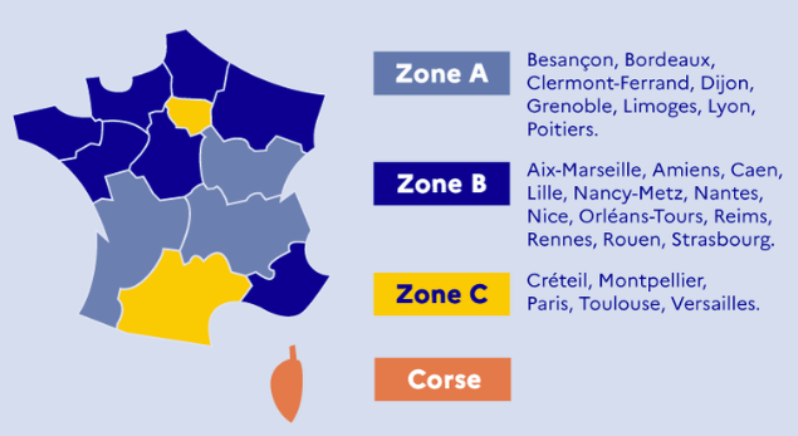Sharing a meal is one of the most authentic ways to experience French culture.
Whether you’re dining with a host family or friends, understanding French dinner etiquette will help you feel confident, welcomed, and connected.
Why dinner matters in French culture
In France, dinner is more than just a time to eat—it’s a daily ritual. Most families eat together around 7:30 to 8:30 p.m., and sitting down at the table is seen as an important moment to pause, reflect on the day, and engage in conversation.
This cultural emphasis on shared meals extends beyond the family. Inviting someone over for dinner is a meaningful gesture in France. It reflects trust and warmth and is often how friendships are deepened. Dinners with friends are cherished events that highlight the French value of convivialité—the joy of being together.
As an international student, you may be invited to dinner by your French peers. This is a special opportunity to connect on a deeper level, and understanding French dinner etiquette will help you feel more confident and at ease.

Arriving on time
Timeliness is important. Arriving on time—or within 15 minutes of the invitation—is considered polite. Being too early may inconvenience the host, and arriving too late without notifying them is generally frowned upon.
Dress appropriately for the occasion. A smart-casual outfit is usually a safe choice unless your host suggests something else.
Greeting your host warmly
First impressions matter. Upon arrival, greet your host with a friendly “Bonsoir” (Good evening). In casual or familiar gatherings, you may be greeted with “la bise”, a light kiss on both cheeks.
Wait for your host to introduce you to the other guests before engaging in conversation.
Learn how to greet people in France here: https://gogofrance.com/en/blog/french-greetings/
Mind your table manners
Understanding French dinner etiquette can seem intimidating, but in casual, friendly settings, there’s no need to worry too much. Still, knowing the basics will help you feel more comfortable:
- Seating: Wait for the host to invite everyone to sit.
- Napkin: Place your napkin on your lap once you’re seated.
- Glasses: You may have multiple glasses—typically one for water and others for wine.
- Utensils: Use utensils from the outside in as the courses progress.
- Bread: Tear off small pieces of bread with your hands rather than biting directly into it.
If you’re interested in learning more about French dinner etiquette—especially in a formal setting—watch this video lesson on table manners, presented by a French countess.
The art of conversation
French people take great pride in the exchange of ideas, and the dinner table is one of the most natural places for meaningful conversation.
Safe topics include culture, travel, art, studies, and food. While the French often enjoy debating politics or current affairs, these subjects are best avoided at your first dinner—unless your host brings them up and you’re comfortable joining in.
This love of conversation is why dinners in France tend to last longer than in many other cultures. Even a weekday meal can stretch over several hours, especially if the conversation flows.
You may be invited to a dinner where you don’t know everyone at the table. This is a great opportunity to meet new people and practice your French in real-life situations. Breaking the ice can be challenging, so here are some conversation starters to help you: https://gogofrance.com/en/blog/useful-french-conversation-starters/
For more information about French etiquette and culture, keep following our Go! Go! France blog.











